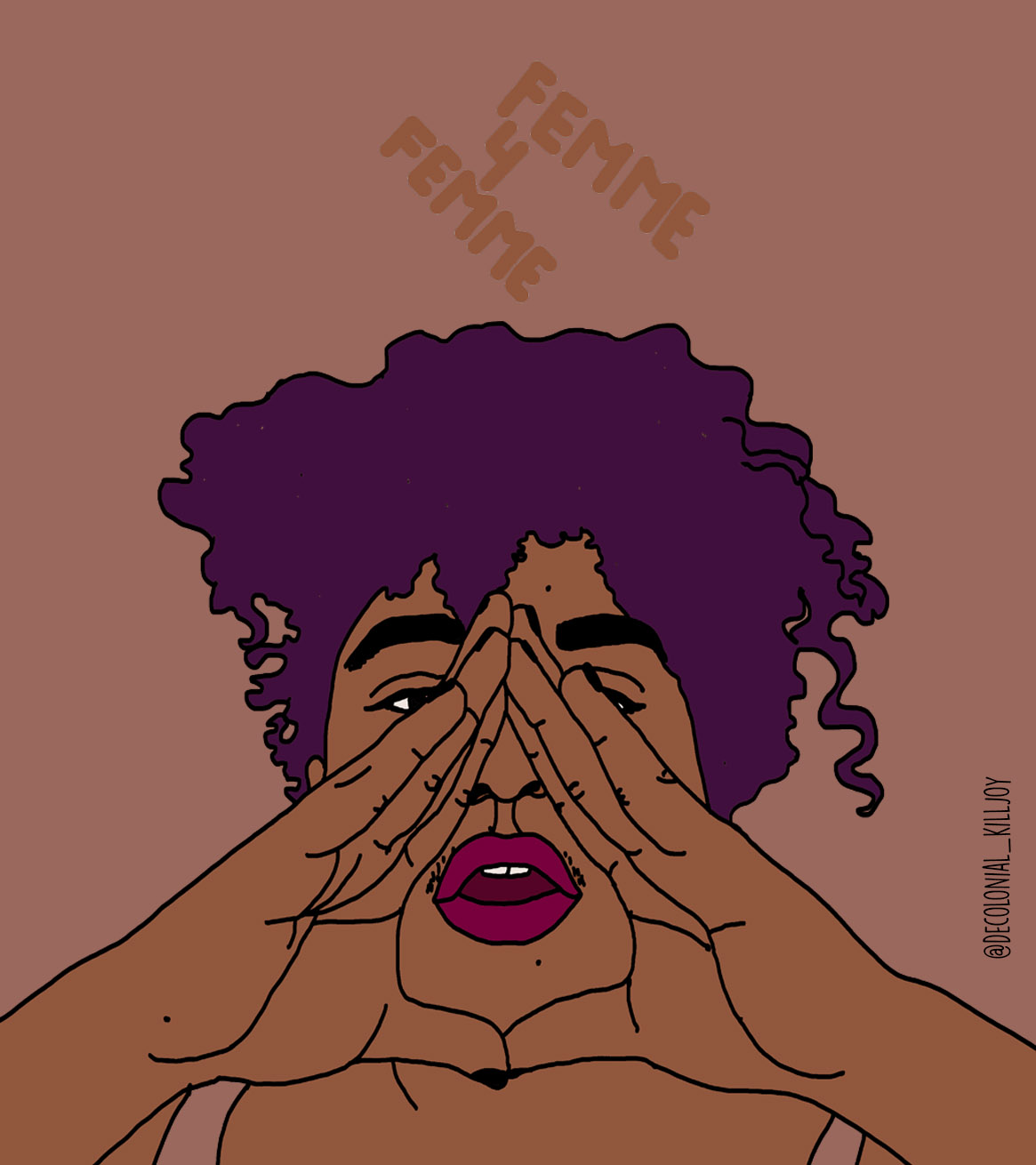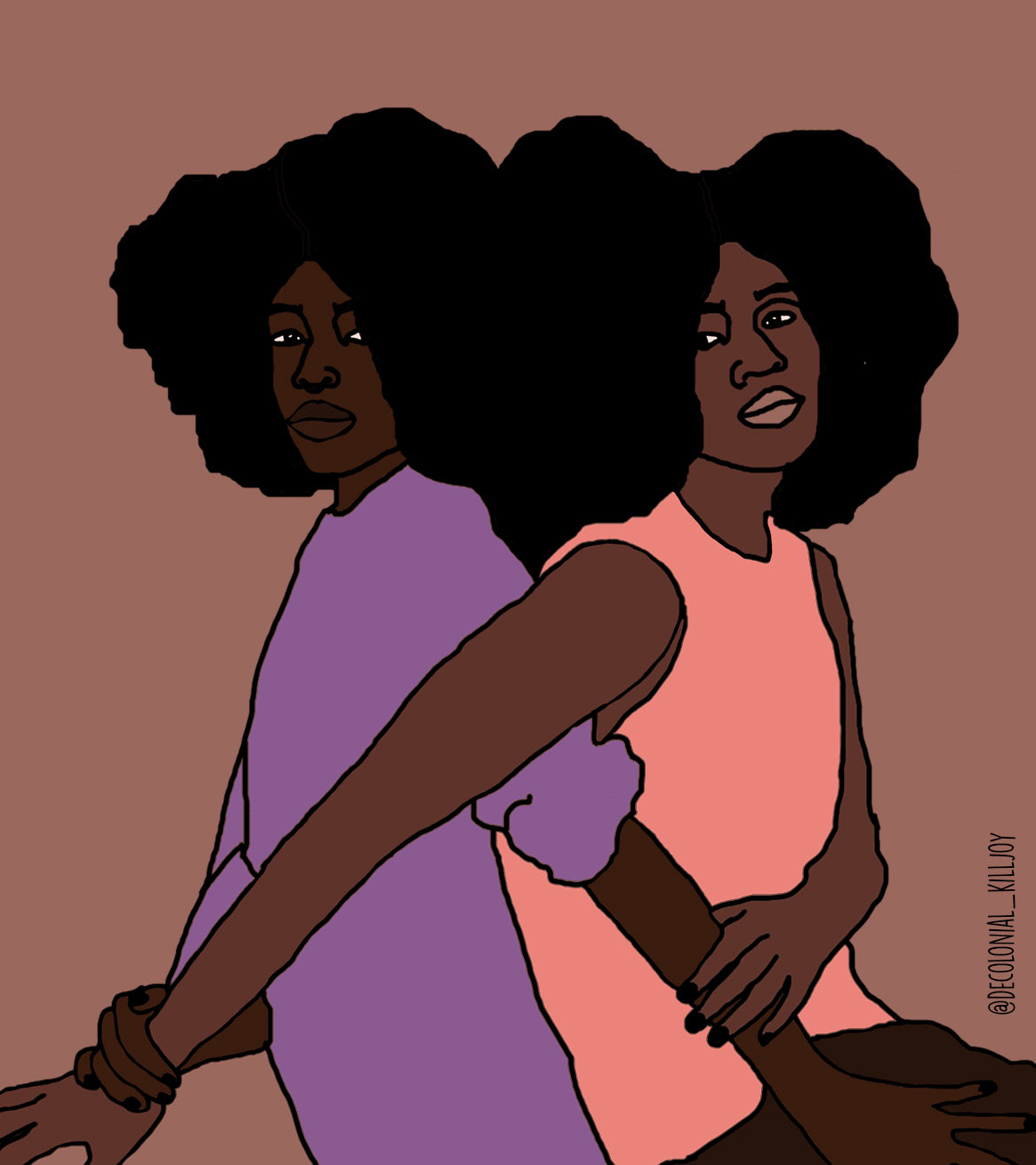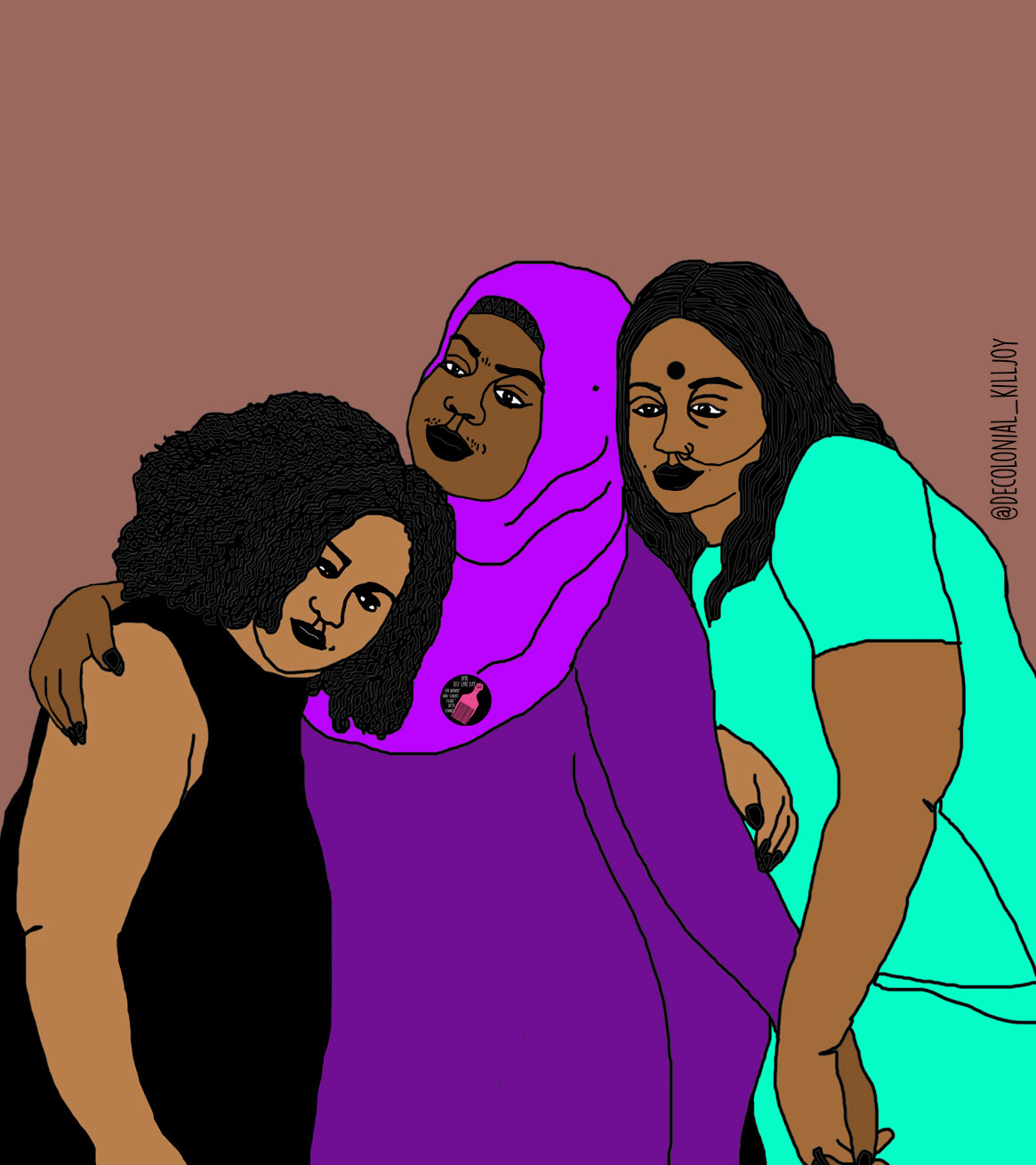Nandi (aka @Decolonial_Killjoy) is a very talented and passionate queer artist in Vienna whose art immediately caught my eye on Instagram. When I saw how she seamlessly infuses her creativity with social justice and empowering others, I knew that I had to share her work and her story with The Glam Femme community. Click below for her full interview!
Please introduce yourself. What is your name? Where are you from? What are your pronouns and how do you identify?
I’m @decolonial_killjoy, a queer femme of color (she/they) who likes to draw and who spends a lot of time thinking about community, belonging and concepts of home(s). I’m currently based in Vienna, Austria but I travel quite a bit within Europe.
What do you do? Would you consider yourself a side-hustler (i.e. do you have a “day job” and a “side job”)?
I love to do many things at once… I am an artist who works in the medium of film, illustration and painting but curating and community organising are also a big part of my practice. I’m part of a collective called WE DEY and currently, we organise an art space in Vienna. WE DEY X SPACE is dedicated to amplifying the art and culture production of Queer/Trans*/Inter/Black People/People of Color. We centre marginalised voices, perspectives, knowledge and experiences from different diasporas. We host exhibitions, workshops, kitchen table talks and film screenings around the topics of decolonial art production, community, self-care and empowerment.
Due to our right-wing government, we haven’t received any public funding, so all the organising we do is completely unpaid. To pay rent and production costs for artists that exhibit at WE DEY, we do crowdfunding and I organise fundraisers in the form of a Barber Pop Up for queers and BPoCs in Vienna. We are also blessed with the support from different communities, friends and our families.
I believe that the field of art and culture production is very precarious for Black artists and Artists of Color in general, especially if we demand to be represented in a self-determined way and refuse to be tokenized. So yeah, it definitely feels like I’m hustling all the time!
How long have you been doing what you do? Why did you start?
My self-organising started by creating WE DEY together with Amoako Boafo in 2013. Just like drawing, I started to organise because I simply had to! I felt very isolated within the art academy, my experiences weren’t reflected at all within the teaching body or the curriculum, so self-organisation and my creative output were the only way for me to keep going. Illustration is a way for me to cope with my experiences as a queer femme of color in Vienna — to connect to QTIBIPoCs worldwide and to also build community in my hometown.
Does what you do make you feel like a part of a bigger community? If so, what is your most important contribution to this community, even if it is a work in progress?
Yes, I definitely feel part of several BPoCs and QTIBIPoC communities. I guess when it comes to my contribution I would say dedicating a lot of my time, care and love into finding ways to create spaces and to share my process. I receive so many amazing messages and feedback in relation to my illustrations, which I feel very grateful for! I never dared to dream that my illustrations could be a form of empowerment for others. As for me, it was mainly a way to deal with my own isolation and days that I wasn’t able to leave my bed.
Do you consider yourself a creative? What does that mean to you?
It took me some time to get used to using the label ‘artist’ but now I realise it’s not only measured in the amount or quality of works that I produce but how I deal with difficult situations and how I live my life and my relationships. In general, it’s embedded in the way I think and feel.
What intersectional struggles do you face every day and how do you overcome them?
My experiences in the workplace and within academia have been quite challenging ones — but being part of different collectives and finding people who experience similar things really helped me a lot!
The white gaze here is so different from other places that I traveled to or lived in and I can cope with that some days better than others. So when it comes to overcoming daily racist experiences, I would say community really saved me, in a way, but I also had to learn (and I’m still learning) how to take care of myself — not only on a collective level but on an individual one too.
Self-care is key — and some sort of a buzz word at the moment. It took me a long time to see past the capitalist notions of buying yourself happy or ‘treating yourself’ towards finding rituals and routines that help me on a day-to-day level.
Speaking of self-care, what is your favorite or most effective self-care method?
It was only recently that I not only understood but I was actually able to physically feel the need to have routines in my life — to make time to be completely alone with my thoughts and to connect to spirituality. That meditation comes in so many different forms so I have to keep finding techniques that work for me in particular moments. It sounds so easy but it’s actually a never-ending process for me — to listen to my own needs and also make time for putting them into action and to be patient with myself at the same time.
What are you most proud of about yourself and what you have accomplished?
I’m really proud that we managed to run a QTIBIPoC art and community space in Vienna, even though it might be only until next May (due to lack of funding/location), and to go through all this hard work and money troubles to see how much we need physical spaces to connect, organise and heal together.
Do you have any upcoming projects or goals?
I would say my goal is to find a way to keep WE DEY x SPACE open and to continue to organise events with and for queer/trans/non-binary/inter Black people & People of Color in Vienna. And, at the same time, to make more space for my artistic work!
How can we see your work/contact you/etc.?
You can find my illustrations on Instagram under @decolonial_killjoy or on my website, decolonialkilljoy.wordpress.com, and to find out more about the QTI/BIPoC art space you can go to we-dey.in.




